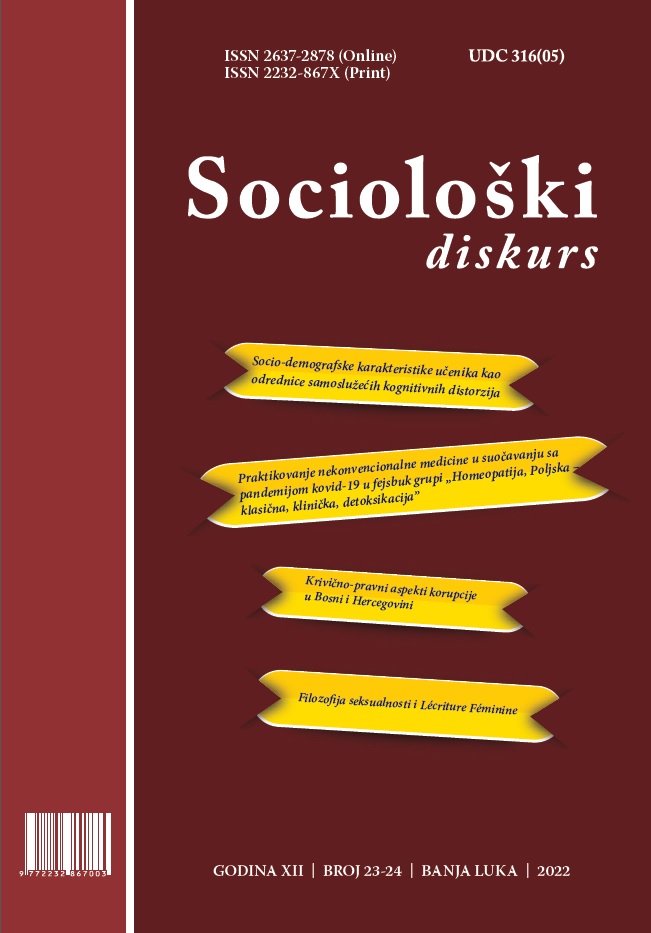SOCIO-DEMOGRAPHIC CHARACTERISTICS OF PUPILS AS DETERMINANTS OF SELF-SERVING COGNITIVE DISTORTIONS
DOI:
https://doi.org/10.7251/SOCEN2323007VAbstract
Cognitive distortions are inaccurate or biased ways of interpreting or attributing meaning to experiences. Their role in the development and maintenance of psychopathology associated with internalizing and externalizing behaviors (aggression, delinquency) has proven to be very important. The aim of this study is to determine the differences in self-serving cognitive distortions measured by How I Think Questi- onnaire (HIT-Q; Barriga, Gibbs, Potter, & Liau, 2001), with regard to the gender, age, place of residence, number of children in the family and family structure, among pupils. The sample in this research was convenient and consisted of 789 pupils, 471 of which were primary school pupils and 318 were secondary school pupils from Republic of Srpska entity. The results show that boys have significantly more prono- unced all four self-serving cognitive distortions ‒ self-centered, blaming others, minimizing/mislabelling and assuming the worst as opposed to girls, who achieve lower scores in these dimensions. Older minors (16- 19 yrs of age) engage (use) more self-serving cognitive distortions in everyday functioning, unlike younger ones (13-15 yrs of age). Respo- ndents from suburbs, that is, rural areas, achieve higher scores on the dimensions of self-serving cognitive distortion ‒ assuming the worst, in contrast to their peers from the city. Children living in single-parent families score higher on the self-serving cognitive dimension ‒minimi- zation/mislabeling, unlike their peers who grow up with both parents. Theoretical and practical implications of these findings are discussed.
